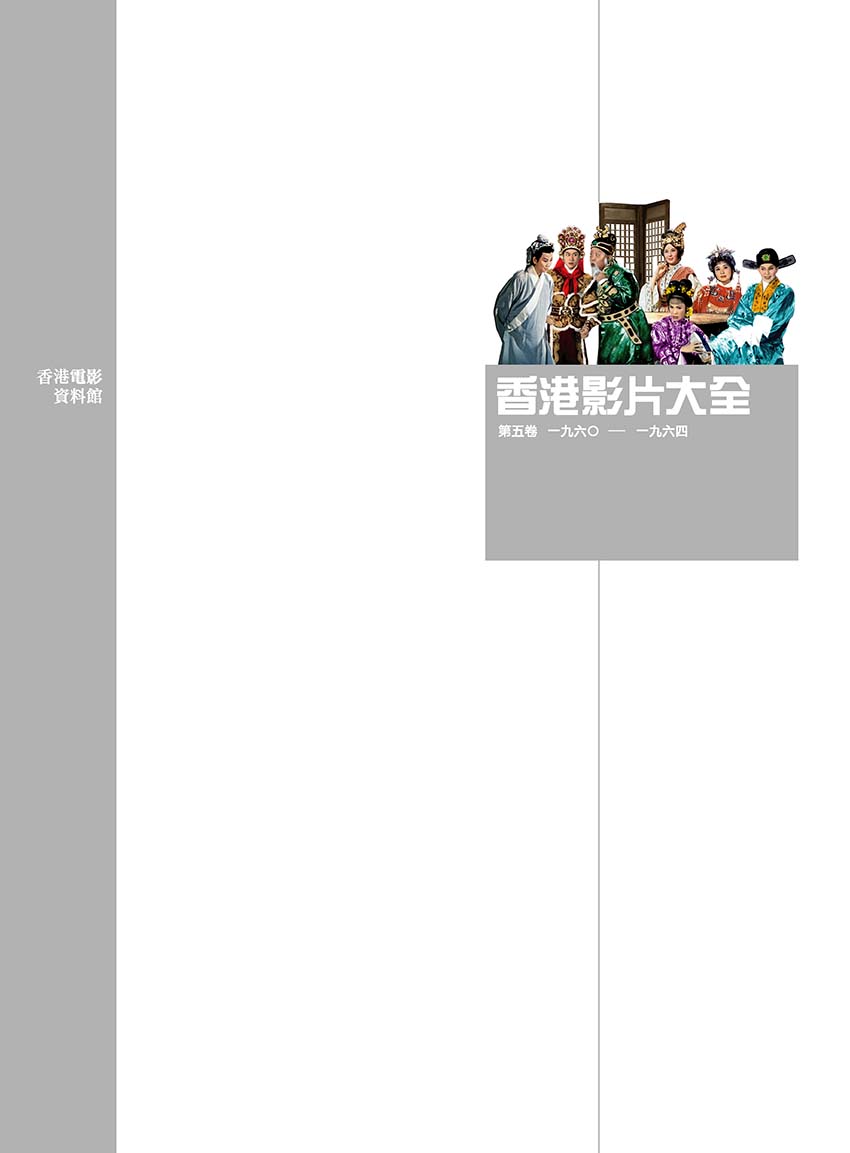
Hong Kong Filmography Volume V (1960-1964) (In Chinese)
Cantonese cinema reaped a bumper harvest during the early and mid-1960s, thriving on the advent of technological and cinematic advances of the earlier decades. Yet the growing market dominance enjoyed by the Mandarin cinema under the big studio system foreshadowed the dramatic decline of the Cantonese cinema towards the end of the decade.
As for Cantonese cinema, Kong Ngee actively sought territorial expansion in the mid-1960s and set up a string of subsidiaries. Chun Kim, a key player at the Union, joined Kong Ngee to become its flag-bearer. The transition the cinema was undergoing at that time coincided with the transfer of directorial talents necessary for the continuation of the lineage. Lan Kwong Film Company, the latest contender, launched production in 1959. Its family melodramas left the terrain of the extended feudal family to address issues pertinent to the nuclear family and hit a nerve with contemporary audiences.
Period films took a liking to the Cantonese opera and martial arts genres. Cantonese opera films attempted to reinvigorate itself by injecting lustrous stage elements such as the 'hair-flinging' and 'round walking' techniques into war-period features. The popularity that the Wong Fei-hung series enjoyed in the 1950s when an overwhelming 60 titles were produced was drawn to a close. Adaptations of 'new style' martial arts novels quickly filled the void.
The rivalry between Shaw Brothers and MP & GI raised the standard of Mandarin filmmaking to an unprecedented height. However, independent studios were worst hit by the onslaught of the Big Two. The era also witnessed the rise to fame of Li Han-hsiang, whose influence towered over the development of Mandarin cinema with the addition of the grandeur palace epics Yang Kwei Fei, The Magnificent Concubine (1962) and Empress Wu Tse-tien (1963) to the Shaw repertoire, and his unique language of aesthetic crafted in the huangmei diao opera film, The Love Eterne (1963). Great Wall and Feng Huang, two left-wing studios, mounted a formidable defence. Unswayed by the huangmei diao craze, the studios released a string of Yue opera films, including Bride Hunter (1960) and The Princess Falls in Love (1962), and featured its star attraction Hsia Moon whose singing was dubbed by a mainland prima donna.
Hong Kong Filmography Volume V documents over 1,200 fiction films and documentaries produced between 1960 and 1964. 560 pages thick with 24 colour poster stills. Hardcover. Published in 2005, priced at HK$225. (Edited by Kwok Ching-ling)
ISBN 962-8050-31-1
Contents
Foreword
Yu Mo-wan
Preface
Wong Ainling & Kwok Ching-ling
From the Editor
Kwok Ching-ling
Editorial Notes
Fiction Films:
1960
1961
1962
1963
1964
Supplement: Fiction Films from the 1950s
Documentaries
Complete Film List
Index I: Titles
Index II: Personalities
Index III: Companies
Bibliography
Acknowledgements

